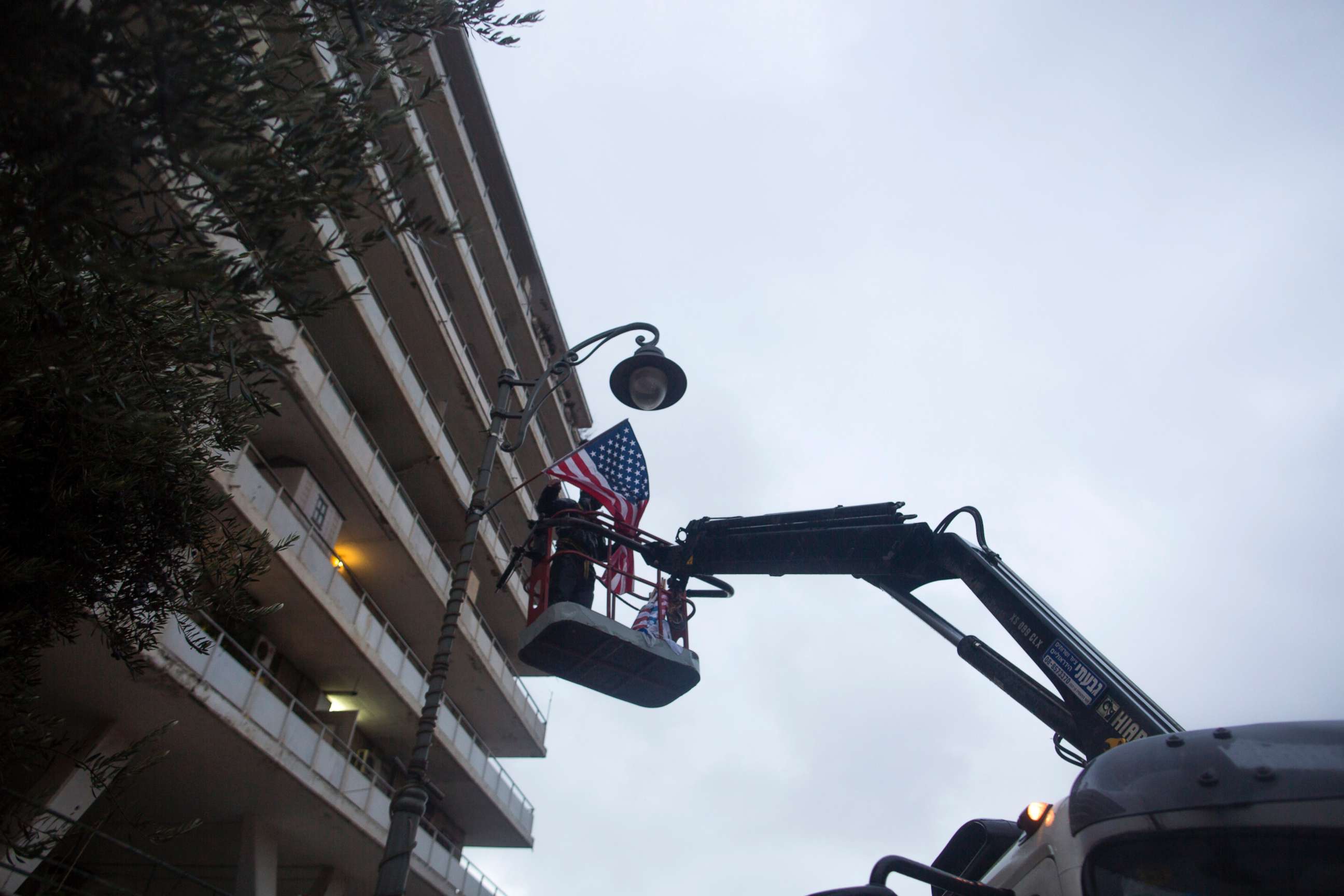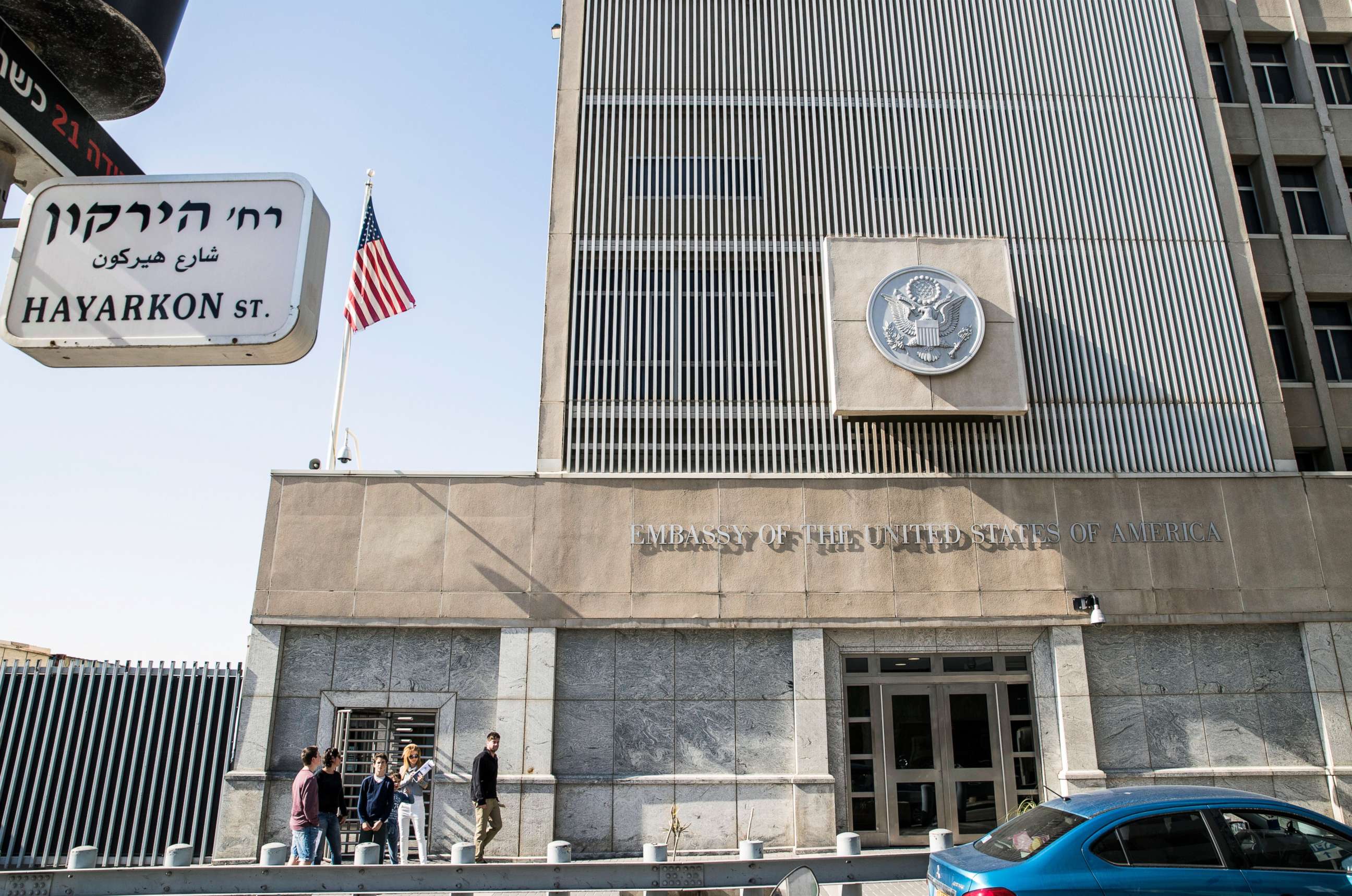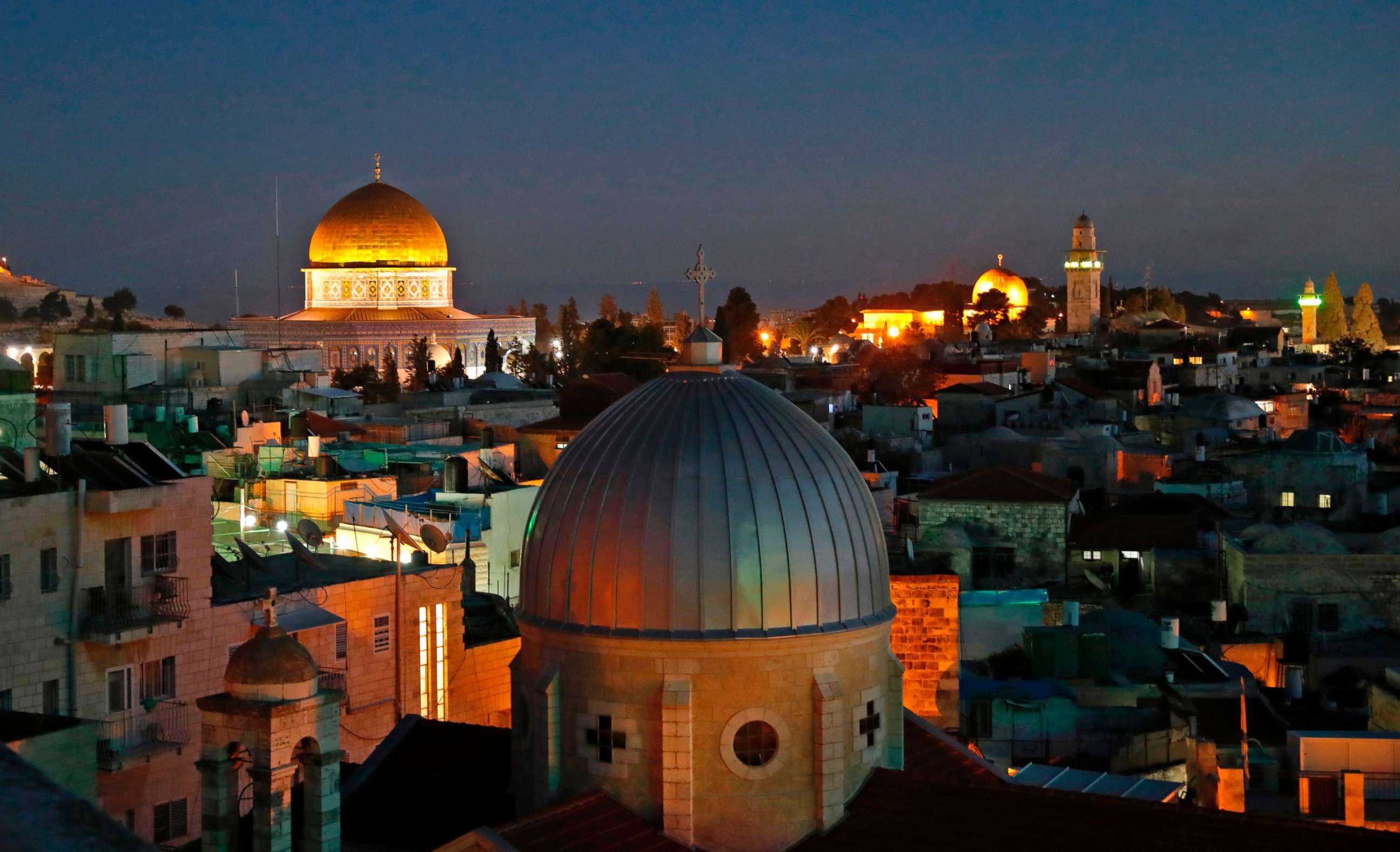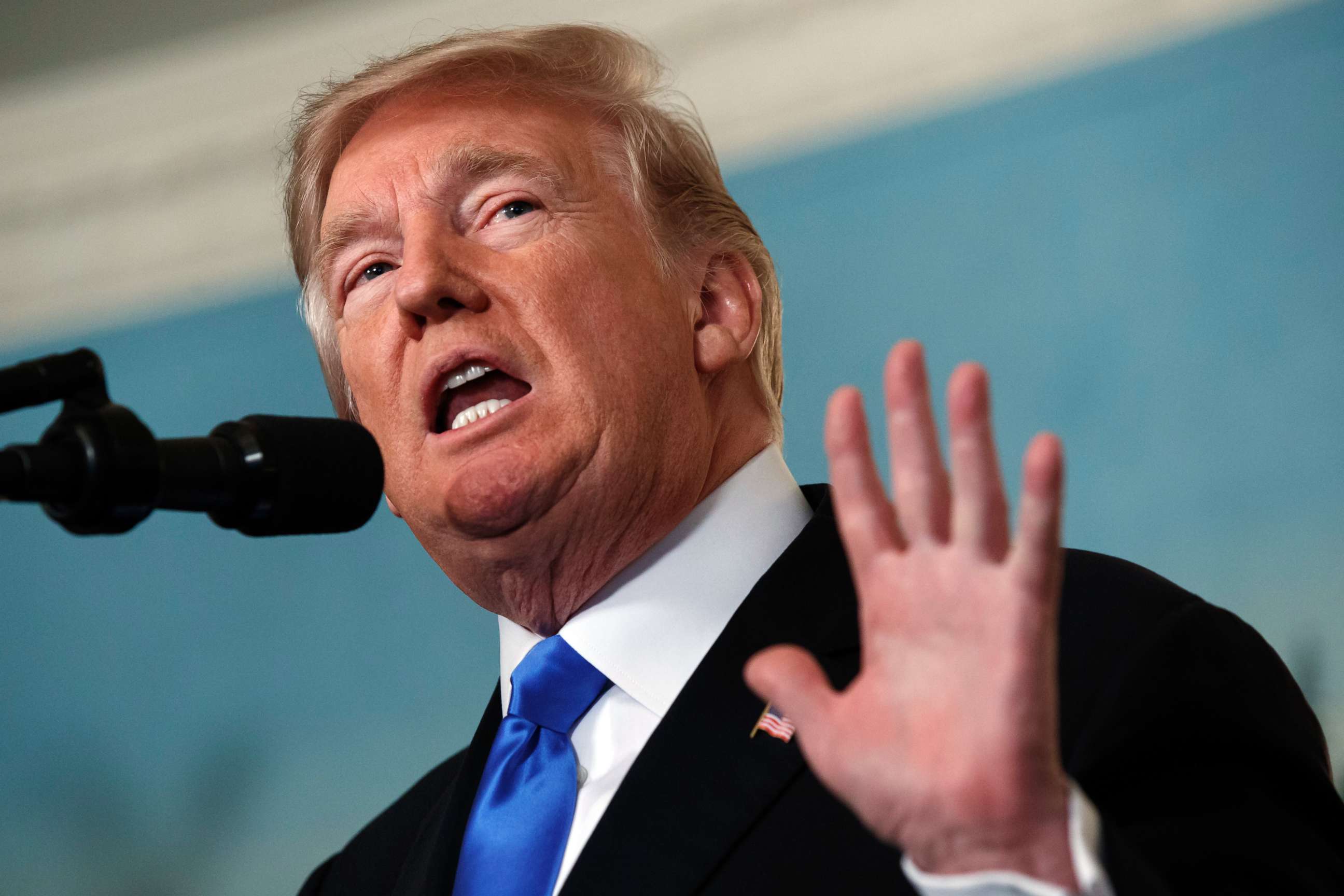Fallout from Trump's Jerusalem decision could be dangerous, experts warn
Trump announced today the U.S. will move its embassy in Israel to Jerusalem.
— -- President Donald Trump's decision to buck decades of foreign policy directives by announcing the U.S. will move its embassy in Israel from Tel Aviv to Jerusalem did not come as a surprise to a number of foreign policy experts.
It did, however, leave them with a number of questions.
“He obviously made the decision because he made a commitment during the campaign,” said Dennis Ross, a senior Middle Eastern policy advisor for several recent U.S. administrations.
Ross also noted that Trump’s decision was likely also influenced by his distaste for the waivers that presidents have signed citing national security concerns as the reason to keep the embassy in Tel Aviv.

Trump noted, in his address at the White House Wednesday when he announced the move, how "presidents issued these waivers under the belief that delaying the recognition of Jerusalem would advance the cause of peace…. Nevertheless, the record is in.
"After more than two decades of waivers, we are no closer to a lasting peace agreement between Israel and the Palestinians. It would be folly to assume that repeating the exact same formula would now produce a different or better result," Trump continued.
Ross said that Trump's announcement doesn't appear to be -- at least publicly -- part of a much larger, organized step toward a peace plan.
"I think the reality is that this was a move that probably was surprising to many within the administration," Ross said.

“This is the kind of thing that had the administration spent time preparing this with the Arabs ... they might well have been able to work something out,” Ross said, noting that because that didn’t happen, the move “leaves these Arab partners on the defensive.”
Elliott Abrams, who served as deputy national security adviser to former President George W. Bush and was a vocal critic of Trump during the campaign, calls the move “long overdue and the proper decision.”
“I think the president is likely saying threats of violence are not going to have veto over American foreign policy,” said Abrams, who is now a senior fellow for Middle Eastern studies at the Council on Foreign Relations.
“I don’t think it will change America’s relations with other countries -- including Arab countries. People will make their speeches today, there might be some rioting … [but] many of the speeches that Arab leaders make are being made for domestic consumption and they have no intention of allowing this to interfere in their relations with the United States,” Abrams told ABC News.
Ross disagrees, saying that it’s not just Arab allies who will be displeased with this move. He noted how “all of our allies in Europe were against this” shift as well.
“It’s a reminder that he’s going to go his own way,” Ross said, adding that it could make European allies “less convinced that they should count on the U.S.”

Dr. Judith Tucker, a history professor at Georgetown University and the president of the Middle East Studies Association, said that Trump’s announcement today that the move still allows and “reaffirm[s] my administration’s longstanding commitment to a future of peace and security for the region.”
“My political imagination doesn't extend to understanding what he possibly could have had in mind,” Tucker told ABC News.
She also said that the move makes the prospect of the U.S. playing an instrumental role as a “fair broker” in any future Middle East peace agreement “ring very hollow.”
“I can’t even fathom why the U.S. would do this. I just don’t understand it as a move. I don’t think it makes any sense in terms of foreign policy objectives,” she said.
Khaled Elgindy, a fellow with the Center for Middle East Policy at the Brookings Institution, said that while the move shows “mainly a profound lack of understanding of the region,” he believes it was “motivated primarily if not exclusively by domestic politics.”

Elgindy told ABC News that moving the embassy to Jerusalem has been a “key demand of evangelical Christians” in the U.S. for a number of years as well as “conservative Jewish elements” within the U.S. He said he believes in this case, a change in foreign policy was done based on possible domestic support.
“Is it appropriate for the United States to be making major foreign policy decisions on narrow sectarian concerns?” he wondered.
Elgindy added the “overwhelming view” among foreign policy experts “is that this is a very dangerous move on many levels, saying it plays into the hands of extremists in the region.
"[It] feeds the narrative that United States and Israel are waging a war against Islam," he said.
Ross said that it is clear that this move was important to Trump’s evangelical base, “but I would put it more generally: He likes to be seen as acting on the promises he’s made, particularly the promises he’s made to his base ... and to show that he's different [from other presidents].”
Editor's note: This story has been updated to accurately reflect Ross's diplomatic role.




